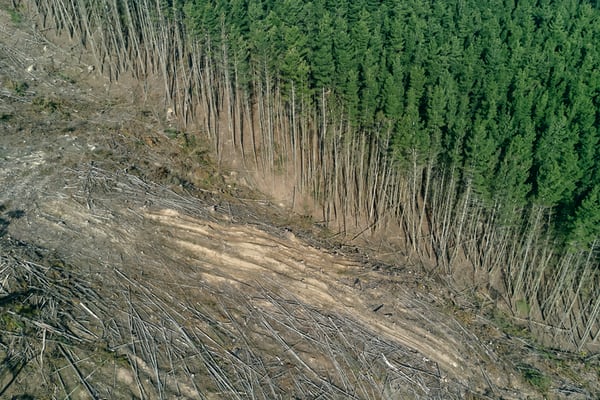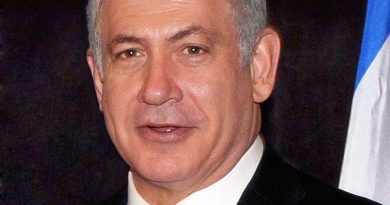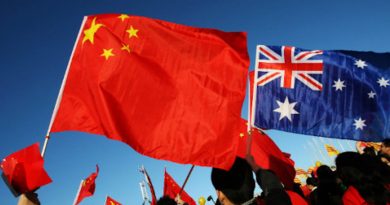Could a New Legal Approach Curb Deforestation?
Katherine Dorrer
Staff Writer
The Brazilian Government is ignoring the amount of carbon dioxide being emitted through the combination of deforestation and agricultural exploitation practices in the Amazon Rainforest under President Bolsonaro’s administration. Officials are failing to acknowledge the climate imbalance of the Global South, wildlife extinction, and habitat loss the rainforest is currently facing. The Indigenous Organization in Brazil (IOB) is desperately calling out the need for the International Criminal Court (ICC) to start an investigation into Brazilian President Jair Bolsonaro for his role in the Amazonian genocide, claiming that if he remains in office there will soon be a mass ecocide in the rainforest.
The Independent Expert Panel for the Legal Definition of Ecocide draft defines an ecocide as an “unlawful or wanton acts committed with knowledge that there is a substantial likelihood of severe and either widespread or long-term damage to the environment being caused by those acts.” In a deeper understanding of this term, the environment includes the “earth, its biosphere, cryosphere, lithosphere, hydrosphere, and atmosphere, as well as outer space” and wanton as “regarding reckless disregard for damage which would be clearly excessive in relation to the social and economic benefits anticipated.” This term has been used in the past, commonly known to Swedish Prime Minister Olof Palme when he stated at the 1972 U.N. Conference on the Human Environment that, “rapid industrial progress could deplete natural resources at unsustainable levels.” Since then, many politicians have rallied for the ICC to adopt the term.
There has been a long history of conflict between President Bolsonaro and the Indigenous tribes of the Amazonian Rainforest. In a report from Al Jazeera, Eloy Terena, the leader of the IOB, stated that “We believe there are acts in progress in Brazil that constitute crimes against humanity, genocide, and ecocide.” The Articulation of Indigenous Peoples of Brazil also claims that President Bolsonaro has knowingly spread COVID-19 across the indigenous populations and actively destroyed their land. According to the Article 15 Communication, “the policies in question include rolling back environmental and Indigenous protection laws; slashing the budgets of key agencies; encouraging development on protected territories; refusing to enforce laws protecting Indigenous peoples; and casting Indigenous peoples as impediments to Brazilian economic development.”
One of the key issues that these indigenous tribes are facing is President Bolsonaro’s suspected support of policies that would benefit the Brazilian economy to the detriment of the environment. Bolsonaro argues the fact that his country has state-sovereignty over the Amazon and that global leaders have ill intentions to impede on their agricultural export industries, reports The Guardian. The Guardian states that since President Bolsonaro took office in 2019, deforestation rates have skyrocketed and fire rates have increased to their highest levels in more than a decade. The National Institute for Space Research concluded that with their data, from January to July, deforestation rates in the Amazon were up 7.8 percent compared to last year, which equates to 5,108 square kilometers.
Recently United States Senator Brian Schatz, Representative Earl Blumenauer, and Representative Brian Fitzpatrick revealed the FOREST Act, Fostering Overseas Rule of Law and Environmentally Sound Trade. The FOREST Act’s main goal is to reduce agribusiness’ role in facilitating deforestation around the globe, according to Friends of Earth. This will be the first piece of legislation to prevent agricultural goods from being produced on illegally deforested or obtained land from the UnitedStates. Representative Fitzpatrick (R-PA) stated that, “Commodity-driven illegal deforestation is wreaking havoc on our planet by contributing to the emission of greenhouse gases and threatening biodiversity and wildlife habitats globally.”
According to Senator Schatz, the bill will also create a framework to provide information and transparency in the international supply chain, while also including deforestation financial crime statutes so that the U.S. can prosecute those who use proceeds from deforestation for illegal use. Along with the U.S., the United Kingdom has also proposed laws that would ban products linked to deforestation, and the European Commission has also vowed to ban goods linked to deforestation, according to Human Rights Watch.
Though these new enactments of legislation are a step in the right direction to decrease deforestation practices in the Amazon Rainforest, will that be enough? The damage is irreversible, but laws and policies are actions that need to be taken in order to regulate agricultural goods. Other nations need to follow the footsteps of those who have proposed and passed legislation targeting corporations that use deforestation for their profit and holding their suppliers accountable for impacting the climate, while also protecting indigenous people and their native land.



